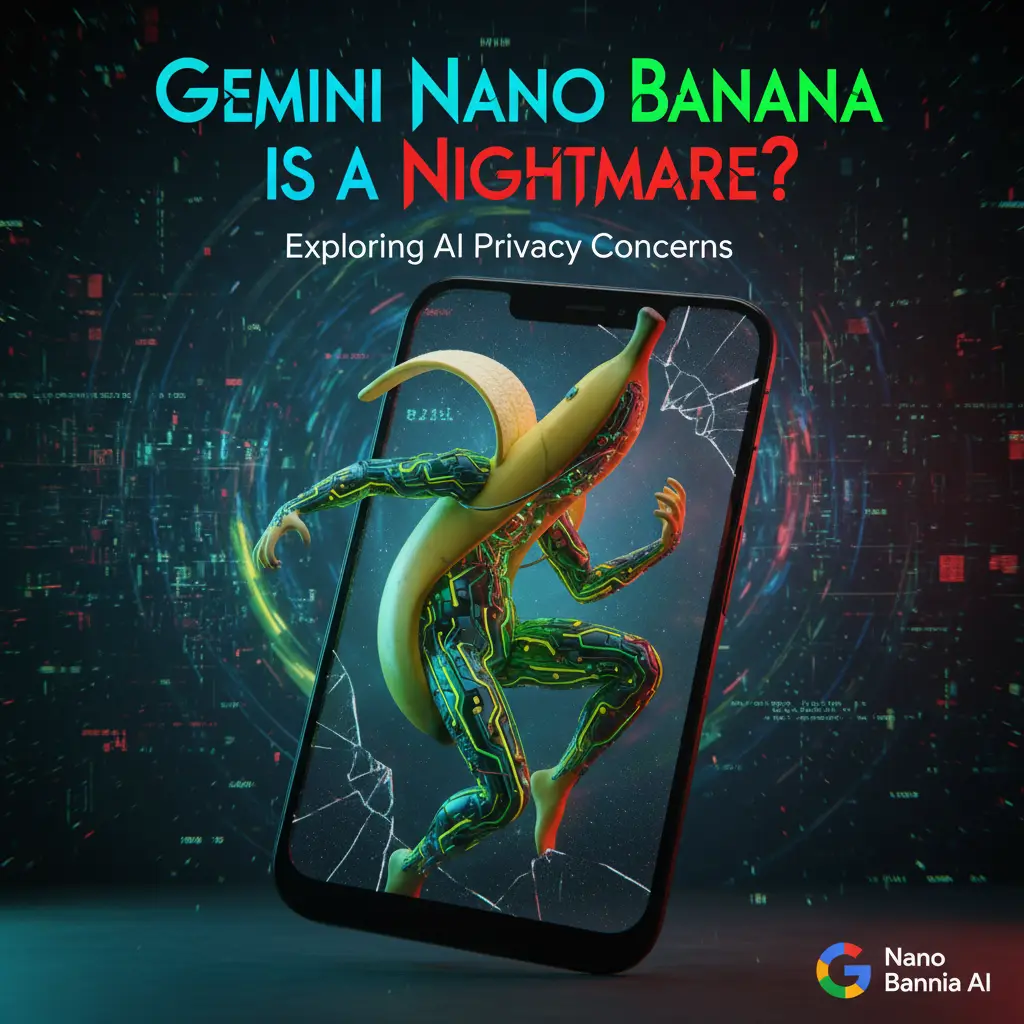The Gemini Nano Banana Craze

The Gemini Nano Banana Craze: Fun Trend or Privacy Nightmare?
The internet has a new obsession, and it goes by the name of Gemini Nano Banana. This Google AI photo editing trend has taken social media by storm, with users transforming their selfies into everything from 3D figurines to vintage Bollywood-style portraits. The numbers are staggering, with over 500 million images generated since its launch last month. But as the craze reaches a fever pitch, a growing chorus of cybersecurity experts and even law enforcement officials are sounding the alarm. Is this viral sensation a harmless bit of fun, or are we trading our privacy for a few cool pictures?
When AI Knows Too Much: The Jhalakbhawani Incident
The turning point in the conversation around Gemini Nano Banana came from a viral Instagram post by user Jhalakbhawani. She shared a side-by-side comparison of a photo she uploaded—in which she was wearing a full-sleeve outfit—and the AI-generated image. The AI image depicted a mole on her left arm, a mole that was completely covered in the original photo. “How did Gemini know that I have a mole on this part of my body? It’s very scary and creepy,” she said in the video, which has since been viewed over 4 million times.
This single incident has become a potent example of the unsettling capabilities of AI, sparking a widespread debate about how much these platforms can infer from our data.
Law Enforcement Issues Official Warnings
The Jhalakbhawani case was not just a fleeting social media moment; it caught the attention of authorities. Indian Police Service officer VC Sajjanar took to the social media platform X to issue a public advisory about the “Nano Banana craze.” He warned, “If you share personal information online, scams are bound to happen. With just one click, the money in your bank accounts can end up in the hands of criminals.”
The Jalandhar Rural Police echoed these concerns, pointing out that Google’s terms and conditions often grant the company permission to use uploaded images to train their AI models. This practice, they cautioned, could open the door to identity theft and other forms of cyber fraud.
Are Technical Safeguards Enough?
Google has stated that it embeds a digital watermark called SynthID into all images generated by Gemini. This invisible marker is designed to identify content as AI-generated. However, experts are skeptical about the real-world effectiveness of this measure.
For one, the tools required to detect these watermarks are not available to the public, which limits their usefulness. As Hany Farid, a professor at UC Berkeley’s School of Information, points out, “Nobody thinks watermarking alone will be sufficient,” noting that watermarks can be faked or removed. Ben Colman, CEO of the AI-detection startup Reality Defender, was even more blunt, telling Wired that watermarking’s “real-world applications fail from the onset.”
Broader Concerns for Younger Users
The privacy issues surrounding Gemini Nano Banana are not the only red flags being raised. A recent safety assessment by Common Sense Media gave Google’s Gemini platforms a “high risk” rating for children and teens. The nonprofit organization found that the versions of Gemini marketed to younger audiences are essentially the adult models with only superficial safety filters. This could potentially expose minors to inappropriate content related to drugs, sex, and harmful mental health advice.
How to Protect Yourself in the Age of AI
The Gemini Nano Banana trend has propelled the app to the top of the charts in India and the United States, surpassing even ChatGPT in downloads. While it may be tempting to jump on the bandwagon, it’s crucial to do so with your eyes open. Here are a few steps you can take to protect your privacy:
Think Before You Upload: Be mindful of the images you share. Avoid uploading photos that contain sensitive personal information.
Strip Metadata: Photos can contain hidden data, such as your location. Use a tool to strip this metadata before uploading.
Review Privacy Settings: Take a few minutes to review the privacy settings on the app and on your social media profiles.
Read the Terms of Service: It may be tedious, but understanding a platform’s terms of service is the best way to know how your data is being used.
The Gemini Nano Banana trend is a powerful reminder that in the digital age, the line between innovation and intrusion can be incredibly thin. As a marketing studio that thrives on creativity, we at Hatke Studio believe in harnessing the power of technology—but always with a commitment to privacy and security.

